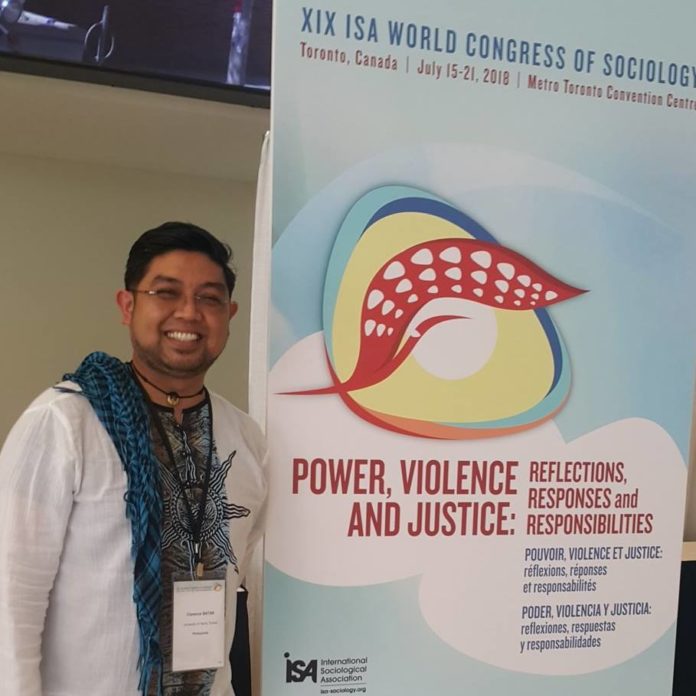A THOMASIAN sociologist has urged the government to put up an interagency program that would focus on generating more stable jobs for Filipinos instead of cracking down on “istambays.”
Clarence Batan, a researcher at the UST Center for Social Sciences and Education, said President Rodrigo Duterte should focus on improving the country’s employment system by tapping various government agencies and not the Philippine National Police (PNP).
“All other government agencies should be tapped for this purpose, not for policing or the criminalization of tambays but seeing these people as potential laborers and future [productive citizens] of the country,” Batan told the Varsitarian in an interview.
An intensified crackdown on loiterers was ordered by Duterte last June 13. The order, Duterte said, was needed to solve the “tambay” problem of the country, which, he claimed, had contributed to the proliferation of illegal drugs, drunken behavior, smoking and others.
A week later, the President claimed that no arrests of loiterers were made. Data however, from the National Capital Region Police Office, showed that an estimated 27,000 people were arrested since June 13 due to violations of city ordinances on loitering.
Batan described Duterte’s desire to rid the streets of loiterers as a manifestation of a huge gap between the government and the poor.
“We cannot [criminalize them because] meron silang role as they are indicators of social inequality in this country. Mahalaga sila kasi they are maintaining the social hierarchy of the Philippines,” he said.
The Commission on Human Rights has slammed the PNP for its “unlawful” arrests and has called for a stop to the imprisonment of loiterers and to uphold the rights of those who victimized by the policy.
“Mahalagang magkaroon ng malinaw na tuntunin na titiyak na ang pagpapatupad ay hindi magreresulta sa paglabag sa ano mang karapatan,” the commission said in a statement last June 22.
Ricky Villanueva, an official of Barangay 470 on Gelinos Street in Sampaloc, Manila, admitted that the drive was not properly implemented.
“Only violators of city ordinances should be penalized,” he said.
Section 447, Article 3 of the Local Government Code of the Philippines mandated municipalities to enact ordinances to end habitual drunkenness in public places, vagrancy, prostitution, gambling and drug addiction, among others.
Batan, a published author of studies on the Filipino ‘istambay’ phenomenon since 2005, said “istambays” are mostly composed of the poor and from both rural and urban areas, mostly unemployed males ranging from 15 to 34 years old.
Instead of targeting the youth, barangay officials should survey their situation, especially the number of the out-of-school and unemployed, Batan said.
“Demographically, we are a young country, we will remain young in the next 30 years. If we target young people who happen to be the human capital potential of this country, then what would be left for us?” he said.
Nicolo Bongolan, a political science graduate of UST, said increasing police visibility would only instill fear among the youth.
“[Police] can arrest anyone they want, threaten whoever, and probably the most threatening: harass those who cannot defend themselves. After all, the duty of the police is to serve and protect; but instead they have created an atmosphere of fear,” he said.
In January of this year, the Philippine Statistics Authority reported that the country had 2.3 million unemployed persons, of which 29.4 percent were junior high school graduates and 21.9 percent were college graduates.


















